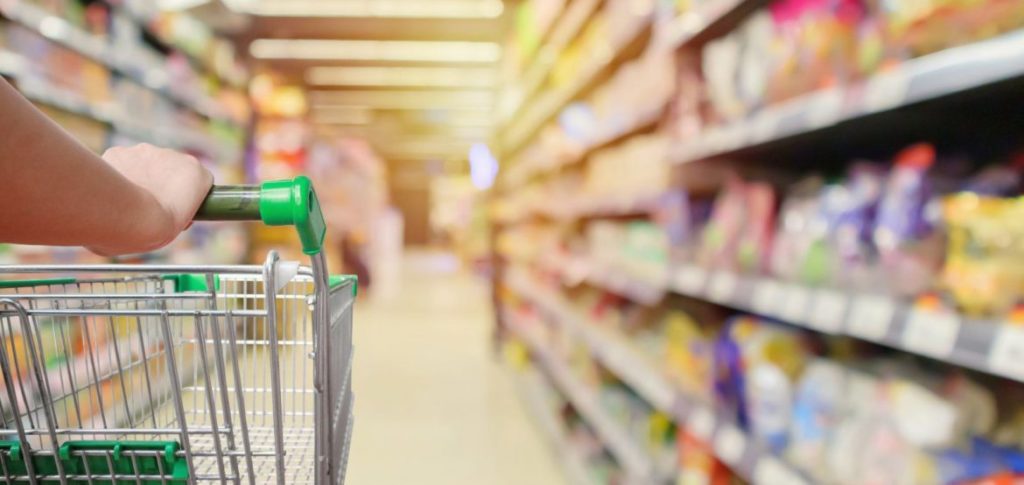The coronavirus pandemic has hit every level of society and exposed vulnerabilities long inherent in many systems. Certain strata of the population are more vulnerable to the effects of the virus, the most at risk being older adults. Many older adults don’t have the immune system to effectively fight off the virus or have other medical conditions that may result in fatal or dangerous complications.

Because of their higher risk of hospitalization, many older adults have to confine themselves in their own homes. This can cause all sorts of problems, especially if they’re living alone. One recent study claimed there are more than 12 million older adults who live on their own in the United States.
These older adults still need groceries and other goods but going outside may not be an option. If you want to help these older adults, you can do their grocery shopping in their stead. Below are 7 tips you should keep in mind when buying groceries for older adults.
- Talk to Them Beforehand
Make arrangements to talk to the older adult you plan on assisting beforehand. Due to the risk of face-to-face communication, you should find a digital channel they can easily communicate through. This initial conversation is essential because you need to use this to ask them what they need, what your financial agreement is and plan the logistics of your grocery shopping.
- Be Mindful of Their Needs
Older adults can have vastly different needs form younger people and you need to keep these differences and needs in mind. Strongly scented laundry detergent may irritate them, mint infused toothpaste can be uncomfortable to their teeth and so on. Buy products that are suited to their needs, such as whitening toothpaste for people with sensitive teeth and laundry detergent made specifically for people with allergies.
- Ask for Prescriptions
You can also ask the older adult you’re assisting if you’d like them to refill their pharmacy prescriptions and other medical needs. Hospitals and drug stores attract large numbers of people and can be very risky for older adults to visit. Make sure to clarify with the older adult what the exact medications are so you can be sure that you’re picking up the correct medicines.
- Determine Dietary Parameters
Once again, older adults will have different dietary requirements and you should endeavor to determine which foodstuffs are appropriate for them. For example, older people will have a difficult time chewing tough or hard food even with dentures and you should avoid them. They may also need light food that’s easy to digest and so you should stock up on fiber-heavy foodstuffs if you want them to avoid indigestion.
Your initial conversations with older adults should also cover whether they have any food allergies or food they can’t consume due to a medical condition. For example, the latter can include food heavy with vitamins they can’t process. Check your list thoroughly to ensure you aren’t buying anything they won’t or can’t consume.
- Choose Healthier Alternatives
Even if the older adult’s diet isn’t as restrictive as others, you should still strive to get them healthier alternatives. For example, you could get them regular prepackaged pasta, but why not switch them over to low-carb pasta instead? When you’re stocking them up on pickled vegetables and jarred fruit, you should choose to buy low-sodium alternatives for pickled products and low-sugar preserved fruit. Older adults who enjoy bread and other similar carbohydrates can benefit from whole grain alternatives. Even their meat products can be made healthier by choosing lean and picking chicken over pork.
- Plan Ahead
Grocery shopping and going outdoors isn’t just a risk to older adults, it can be risky to you as well. Make sure to plan your grocery shopping expedition meticulously to ensure that your safety is guaranteed. Do the grocery run during a low-traffic hour and during a weekday if possible, preferably in the early hours of a Wednesday. This means you’ll encounter fewer people and finish your shopping faster.
- Disinfect Everything
Before you hand over the groceries to the older adult, make sure to thoroughly disinfect your hands and the handles of the shopping bags you’re using. If you can, wipe down food containers and other packaging materials to completely eradicate any trace of contamination. Utilize all measures to that will protect the older adult from risk of infection.
Older adults require plenty of assistance and older adults living alone require more assistance. Doing them this kindness is good, but you have to do it properly. Keep these tips in mind when you’re grocery shopping for older adults and you can make sure they remain safe and sound.